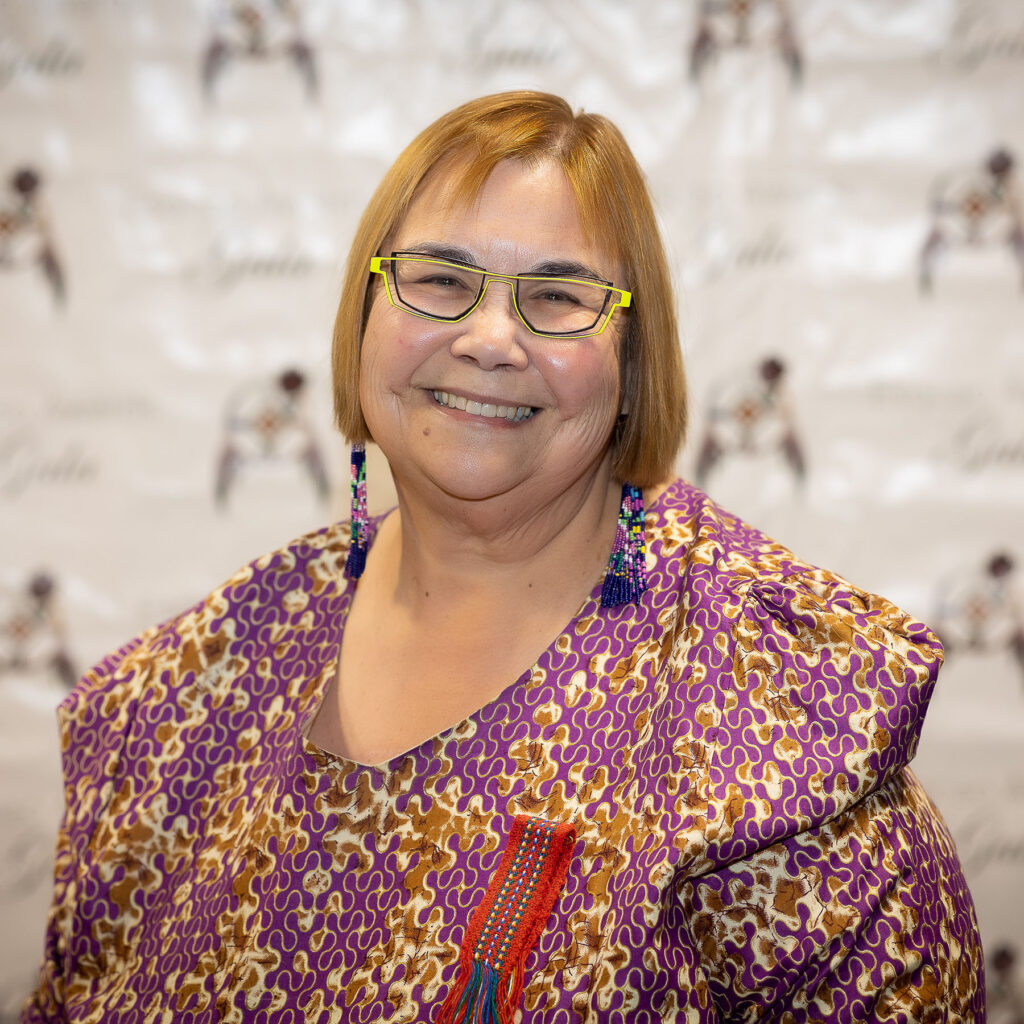A member of the Métis Nation of Alberta, Florence Glanfield is a deeply committed advocate for Indigenous education. She has used her roles as mathematics education professor, PhD supervisor, researcher and university administrator to strengthen, uplift and celebrate the Indigenous community. She led the development of a plan and policies to enhance opportunities and supports for Indigenous students and to guide the university’s response to the Truth and Reconciliation Calls to Action.
Growing up in northern Alberta, Florence is eternally grateful to the strong women in her life who helped shape and support her on her journey. Her mother had finished high school in 1949 and wanted to go to university, but at the time it wasn’t seen as possible so she didn’t end up going. “But she always encouraged me to pursue what I love,” said Florence. “She wanted my sister and I to be independent and realize also who we were and where we are from, so we needed to be able to take care of ourselves and we needed to be happy in whatever we chose to do, and to remember we are part of this big interconnected family.”
Florence’s academic career has seen her work across Canada and internationally, but it was not without hardship. When she first arrived at the university when she was 17 years old, she was told by someone in her program that, ‘I didn’t think you people could do mathematics.’ “While that was a long time ago, you might not hear that aloud now, but I believe there are still some underlying beliefs about where we belong in the institution,” said Florence.
Intensely proud of her Indigeneity, when she began teaching at a University she made a point of introducing herself as Métis when meeting her classes because she wanted to disrupt the ongoing colonial narrative that was fed her by broader society. “I want to make visible that Indigenous women can have bachelor of science degrees in mathematics, we can get PhDs in mathematics education,” Florence said. “We need to let people to know that we can take up these spaces.”
On the subject of recently receiving an Esquao Award, Florence said, “I’ve been thinking a lot about what it means to receive the award and what is my responsibility as a recipient of the award. I want to encourage Indigenous women to look inside of who they are, know it is possible, and it’s not always easy. I was so blown away by the strength of the founders and the beautiful stories of how they came to this.” It’s something that makes her reflect on the role strong women have played in her own life, “I am remembering strong Indigenous women in my family, my mother, grandmother, great grandmothers, great great grandmothers, aunties, sister, nieces, and cousins; I am remembering female Elders and knowledge keepers that have walked alongside me; all of these women were, and are, tireless leaders in their own ways in their communities.”
Dr. Glanfield is a strong proponent of Indigenous language revitalization and amplifying the voices of Indigenous people who work at the U of A in different roles. Looking back, she regrets not being taught Cree or Dene (Chipewyan) growing up, even though her great-grandmother was fluent in both. But today, Indigenous students at U of A are able to participate in language courses, Cree language tutoring, and Indigenous language clubs on campus.
“I think about my late mother, my late grandmother and my late great grandmother and I want them to be proud of who I’ve become and who I’m becoming.”
